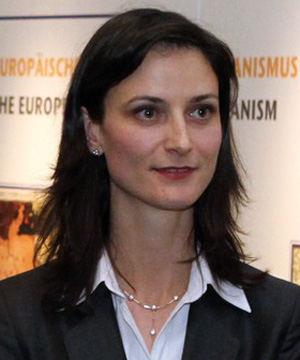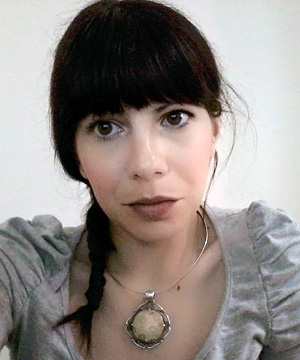Every passing day sees more and more women and children refugees in Europe. The risk of exploitation and abuse in their own countries is also growing and pushes them to embark on the difficult and dangerous road to countries unknown. A congress “Migration and Integration and its Impact on Women” was organized in Sofia a few days ago by the European People’s Party Women, focusing precisely on the problems of integration and the impact of migration on the most vulnerable groups.
“The sooner we realize that what has been happening along Europe’s coast in the past couple of years is no ordinary crisis, that it will change our countries deeply and permanently, the better shall we be able to cope with the migrant flow. Protecting the rights of women and upholding the principle of gender equality are a tool for better migration management,” said MEP Maria Gabriel at the opening of the congress.
 “Bulgaria is a country that can well talk of migration because it is an external border of the EU and because it applies practices that deserve to be popularized. We focused our attention on the position and role of women during the three individual stages. On the one hand – their position in their country of origin – what their rights there are and what can be done for their safety. We discussed the position of women while they are travelling across what are known as transit countries. That is a time when women are extremely vulnerable and often fall prey to human traffickers, to migrant smugglers, to sexual or labour exploitation. And taking a look at integration – what is the role of the society that is accepting them? The women refugees already integrated in these societies, women who have a good life, whose experience can be very useful have a key role to play. Women in politics conveyed a message of support to women refugees and their role as heralds of change and commitment to universal values. As it was formulated at the congress: Women are the human face of migration. I think we had a lot of fruitful discussions that made an emphatic distinction between the two categories – refugees and economic migrants. Talking of refugees the only feeling is a sense of solidarity because they are fleeing war to save their lives. But when we are talking of economic migrants, we must be very clear whether there is control along the external borders, we must know well who is entering the country. Access to education was another issue that was raised at the forum. Even sociologists have been talking of a new “lost generation”.
“Bulgaria is a country that can well talk of migration because it is an external border of the EU and because it applies practices that deserve to be popularized. We focused our attention on the position and role of women during the three individual stages. On the one hand – their position in their country of origin – what their rights there are and what can be done for their safety. We discussed the position of women while they are travelling across what are known as transit countries. That is a time when women are extremely vulnerable and often fall prey to human traffickers, to migrant smugglers, to sexual or labour exploitation. And taking a look at integration – what is the role of the society that is accepting them? The women refugees already integrated in these societies, women who have a good life, whose experience can be very useful have a key role to play. Women in politics conveyed a message of support to women refugees and their role as heralds of change and commitment to universal values. As it was formulated at the congress: Women are the human face of migration. I think we had a lot of fruitful discussions that made an emphatic distinction between the two categories – refugees and economic migrants. Talking of refugees the only feeling is a sense of solidarity because they are fleeing war to save their lives. But when we are talking of economic migrants, we must be very clear whether there is control along the external borders, we must know well who is entering the country. Access to education was another issue that was raised at the forum. Even sociologists have been talking of a new “lost generation”.
The most vulnerable group among refugees are the children coming to this country without their parents. There are no separate premises provided for them, no specialized help from psychologists and pedagogues. These deficiencies in the system is something the Women Refugees NGO in Bulgaria has been sounding the alarm over.
 “At this time the state has no established and working system for assisting refugees and their integration,” says Alexandra Popova from the NGO.
“At this time the state has no established and working system for assisting refugees and their integration,” says Alexandra Popova from the NGO.
“At the moment only NGOs have been making any effort for the active integration of refugees. Being an NGO we too rely on projects. Coming to Bulgaria, the refugees have to build their lives from scratch. To be able to do so they need translators, Bulgarian language teachers, access to information about the refugee status granting procedures in this country. Unfortunately, compared to last year, public opinion with regard to refugees has shifted in a negative direction. A significant role in this is played by the media which have not been giving objective coverage to the issue. Refugees are frequently referred to as illegal immigrants and that is wrong because it breeds fear. If you do not understand the language or the culture of strangers, it is a normal reaction to reject them. But once we know their past and present, we shall accept them with understanding and compassion.”
English version: Milena Daynova
Gergana Mancheva
Bulgarians across the country are welcoming the New Year with various initiatives. More than 20 members of the club of karate and yoga coach Emil Zlatev in Varna traditionally swam in the sea on January 1. They say that they never..
The President of the Republic of Bulgaria Rumen Radev has congratulated all Bulgarians at home and around the world on the arrival of the New Year 2025 and wished them peace, health and prosperity. "The world is sending off a year..
Traditionally, the citizens of Sofia and guests to the capital can welcome the New Year 2025 together at the central Knyaz Alexander I Battenberg Square. The celebration today, December 31, begins at 21.30. Some of the most popular Bulgarian pop and..
On the night of 19-20 January - the celebration of Yordanovden (Epiphany) and Ivanovden (St. John's Day) in the Julian calendar - the northwestern town of..
Interest in the exhibitions and events at the Regional History Museum in Ruse on the Danube is growing. In the last 12 months, it had 95 966 visitors,..
From the first attempts to fly with homemade wings back in the 19th century, to the world's first combat flights with reconnaissance and bombing..

+359 2 9336 661
